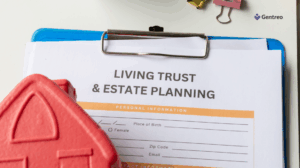
Photo by OleksandrPidvalnyi on Pixabay
Understanding the Importance of Ongoing Estate Planning
Creating an estate plan is a crucial step in ensuring our assets are protected and our loved ones are taken care of in the future. However, it is important to understand that estate planning is not a one-time task. Once your initial estate plan is complete, there are several important steps you need to take to ensure its effectiveness in the long run.
Reviewing and Updating Your Estate Plan Regularly
Just like any other legal document, your estate plan needs to be reviewed and updated regularly. Life is constantly changing, and your estate plan should reflect those changes. Major life events such as marriage, divorce, the birth of a child, or a significant change in your financial situation may require updates to your plan. By reviewing and updating your estate plan regularly, you can ensure that it continues to align with your wishes and goals.
It is recommended to review your estate plan at least once every three to five years, or whenever a major life event occurs. During the review process, take the time to assess whether any changes need to be made to your beneficiaries, executors, or trustees. Additionally, ensure that your assets are properly titled and designated to avoid any potential complications down the line.
Communicating Your Plans with Loved Ones and Beneficiaries
After completing your estate plan, it is crucial to communicate your intentions with your loved ones and beneficiaries. While it may be a difficult conversation to have, open communication can prevent misunderstandings and reduce potential conflicts in the future. By sharing your wishes and explaining the reasoning behind certain decisions, you can provide peace of mind to your loved ones and ensure that your estate plan is carried out as intended.
Having a family meeting or individual discussions with your loved ones can be a helpful way to share your plans. During these conversations, be open to answering any questions or concerns they may have. It is important to remember that your estate plan is ultimately your decision, but by involving your loved ones in the process, you can help them better understand your intentions and minimize potential disputes.
Organizing and Storing Important Estate Planning Documents
Once your estate plan is complete, it is crucial to organize and store all the relevant documents in a safe and accessible location. This ensures that your loved ones can easily locate and access these documents when needed. Important estate planning documents may include your will, trust documents, power of attorney, healthcare directives, and any other relevant legal documents.
Consider keeping physical copies of your estate planning documents in a secure location such as a fireproof safe or a safety deposit box. Additionally, it is recommended to have digital copies stored securely as well. Utilize encrypted cloud storage or a trusted digital platform to ensure the confidentiality and accessibility of your documents.
Beneficiary Designation and Asset Titling Considerations
Reviewing and updating beneficiary designations and asset titling is an important step in ensuring the effectiveness of your estate plan. Beneficiary designations, such as those on life insurance policies, retirement accounts, and bank accounts, override any instructions in your will. Therefore, it is crucial to regularly review and update these designations to align with your current wishes.
Similarly, asset titling plays a significant role in estate planning. Properly titling your assets, such as real estate or investment accounts, can help avoid probate and simplify the transfer of ownership to your intended beneficiaries. Consulting with an estate planning attorney or financial advisor can provide valuable guidance in titling your assets to ensure they are aligned with your overall estate plan.
Exploring Additional Estate Planning Tools and Strategies
While your initial estate plan may cover the basics, there are additional tools and strategies that can further enhance its effectiveness. For example, establishing a revocable living trust can provide added privacy, flexibility, and control over the distribution of your assets. Trusts can also help minimize estate taxes and avoid the probate process.
Other estate planning tools to consider include durable power of attorney, which designates someone to make financial decisions on your behalf if you become incapacitated, and healthcare directives, which outline your medical preferences and designate a healthcare proxy. These additional tools can provide peace of mind and ensure that your wishes are carried out in various situations.
Tax Planning and the Impact on Your Estate Plan
Tax planning can be an essential aspect of estate planning, and it can be important to understand how taxes may impact your estate plan. Estate taxes, gift taxes, and income taxes can all have significant implications on the distribution of your assets. Consulting with a tax professional who specializes in tax planning can help you navigate the complexities of tax laws and develop strategies to assess and possibly minimize your tax liability.
The Role of a Trustee or Executor in Your Estate Plan
If you have appointed a trustee or executor in your estate plan, it is important to understand their role and responsibilities. A trustee is responsible for managing and distributing the assets held in a trust, while an executor is responsible for carrying out the instructions outlined in your will.
It is crucial to choose individuals who are trustworthy, competent, and capable of fulfilling their duties. Communicate your expectations and wishes clearly with your chosen trustee or executor, and provide them with all the necessary information and documentation they may need to fulfill their responsibilities effectively.
Taking the Next Steps to Ensure the Effectiveness of Your Estate Plan
Completing your estate plan is a significant accomplishment, but it is not the end of the journey. To ensure the long-term effectiveness of your estate plan, it is important to review and update it regularly, communicate your intentions with loved ones, organize and store important documents, consider beneficiary designations and asset titling, explore additional estate planning tools and strategies, incorporate tax planning, seek professional advice for complex situations, and understand the role of trustees or executors.
By taking these next steps, you can ensure that your estate plan continues to align with your wishes and goals and provide peace of mind for both you and your loved ones. Estate planning is an ongoing process, and by staying proactive and informed, you can adapt to life’s changes and protect what matters most.
Don’t wait until it’s too late; start your estate planning journey with Gentreo today. By doing so, you’ll not only protect your loved ones but also gain the peace of mind that comes with knowing your legacy is secure. Click here to join now https://private.gentreo.com/auth/register.
This article is for informational purposes only and should not be considered legal advice. Consult with a qualified attorney or estate planning professional for personalized guidance.







